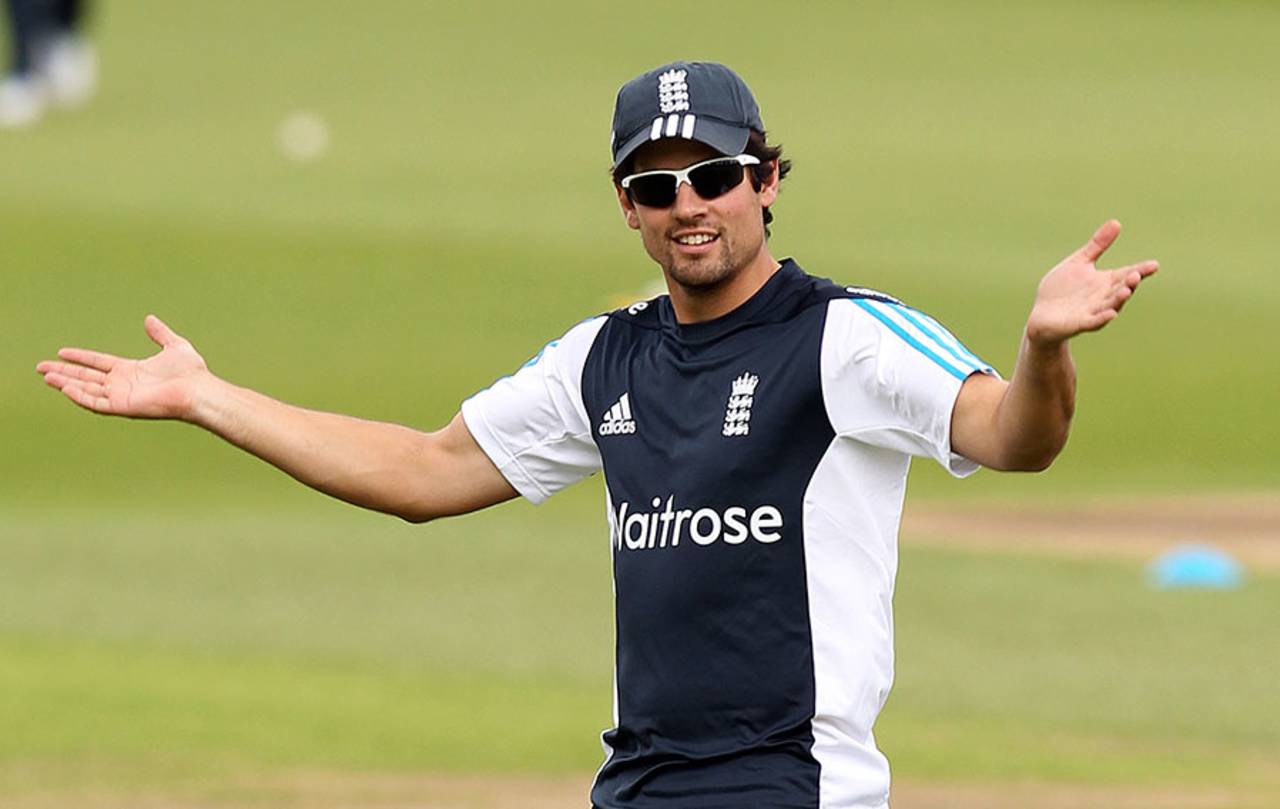England need to wake up to ODI reality
If England are to keep abreast of more explosive sides like India, they need a radical change in approach, as Eoin Morgan recently stated
Jon Hotten
18-Nov-2014

Alastair Cook and England need to change their mindset in the face of a rapidly changing ODI scene • PA Photos
No sportsman tells himself he will be all right more often than a boxer. Partly because they do what they do alone, and partly because there is such devastating harm at hand, they construct citadels of self-belief that seem, from the outside, more impenetrable than the bodies that will eventually and inevitably betray them.
There was an example of it on Saturday night, when Ireland's veteran Matthew Macklin was badly knocked out in the tenth round of a world title elimination bout by the Argentinian middleweight Jorge Sebastian Heiland. Macklin, bearded, beaten, and exhausted by this battle and all of the others that had come before it, confronted every fighter's nightmare: a younger, fresher man who he could not stop, could not hold off. He had fallen in his own corner, his head lying queasily over the top rope, his seconds jumping in immediately.
Afterwards, Macklin gave a ringside interview where he said: "I could have carried on, but the ref decided it was over…"
In truth, the referee hadn't even bothered to count. If he had, he'd have reached about 20 by the time Macklin was propped back on his stool by his trainer, his senses returning at last. As with all warriors, the body was fallible, the will unbreakable, sometimes delusional.
It put me in mind of the interview Alastair Cook gave last week on the eve of England's departure to Sri Lanka for a series of seven ODIs that mark the start of their World Cup preparations in earnest.
"It is down to every single individual player playing to the peak of their potential. Then we have a real good chance at the World Cup," he said. "You talk about strategy, you talk about the way you want to bat - to me it's about individuals in the team playing as well as they can, and if we get to that place, peaking at the right time, then we have a really good chance."
Even the most casual observers of Cook over the summer would have noted the depths of his self-belief, yet even as he spoke, it was assailed on four fronts.
The few days that surrounded his media appearance saw Rohit Sharma make 264, India pass 400 for the fifth time, Virat Kohli register his 21st ODI century, and Eoin Morgan speak out, bravely and in scathing fashion, about England's sagging standards of domestic T20 cricket and the cost of their failure to embrace the IPL.
Mindset is what made Cook's interview so depressingly at odds with the point Morgan was making and the evidence that the rest of the world is beginning to produce
As batterings go, it was a heavy one. As several Twitter wags observed, Rohit had made individually a score that England find quite respectable as a team total. India's 404 was the 11th time a side has passed 400 - England have never done it. In fact, they have only ever exceeded 350 on two occasions, one of those in a 55-over game, even though 350 or more has been scored 68 times in ODI history. Kohli has now made nine more hundreds than any England player - Marcus Trescothick is top of that list with 12 (and second is Kevin Pietersen with - you guessed it - nine). Kohli is 26 years old.
Such stats, not really valid for true analysis, yet somehow indicative of England's history and approach to 50-over cricket, were at the root of Morgan's fluent dissection of the problems at hand. Most of all, it is about mindset.
Mindset is what made Cook's interview so depressingly at odds with the point Morgan was making and the evidence that the rest of the world is beginning to produce:
"In the last three or so years 250 being par has gone up, but I don't think it has gone up as much as people have made out," Cook said. "We haven't won our last few series, so we do have to improve the way we play. I don't think it requires a radical change of method, though."
I'm sure Cook believes this, in the same way that Macklin believed he could have carried on fighting on Saturday night. England's stats men have probably fished up some numbers that sustain the argument. What that argument does not allow for is the increasing gap between these average scores (and I mean average in the sense of mediocre as well as the usual) and the upper reaches that more explosive sides can reach.
Kohli, exemplar of modern 50-over batsmanship, offered Cook another example in the final game against Sri Lanka, ending a nervy run chase by firing a couple of sixes deep into the stands off Ajantha Mendis. It was the sort of thing that MS Dhoni has been doing for years, and for Kohli it was now simply part of the day job.
Cook may believe one thing and the stats may somehow back him up. But Kohli offered a glimpse of the gap that England have as yet not crossed.
Jon Hotten blogs here. @theoldbatsman